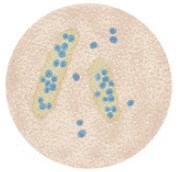A hypertensive emergency is MOST accurately defined as:
A) an increase in the blood pressure due to medication noncompliance.
B) an elevated blood pressure that is accompanied by a frontal headache.
C) a blood pressure greater than 170/90 mm Hg with a severe nosebleed.
D) an acute elevation in blood pressure with signs of end-organ damage.
Answer: D) an acute elevation in blood pressure with signs of end-organ damage.
You might also like to view...
Which of the following legislation allows physicians to legally withhold treatment, including food and water, from infants who are chronically and irreversibly comatose?
A. federal Child Abuse Amendments B. best interest of the child act C. abandoned infant act D. parens patriae E. safe haven law
Which parameter is not usually included in a CBC?
A) Hemoglobin and hematocrit B) Red and white blood cell counts C) ESR D) WBC differential
You are performing a microscopic examination of Mr. Henderson's urine sample. Under high-power magnification, you see the items shown in the picture. Which of the following is the most likely cause?
A. Heavy-metal poisoning B. Allergic reaction C. Vigorous exercise D. Renal ischemia E. Pyelonephritis
You are the first to arrive on the scene of a motor-vehicle collision. Your scene size-up reveals a tanker truck on its side with an unresponsive driver in the cab. Multiple bystanders are around the cab waving for you to come over and help the driver. Your immediate action should be to:
A) order the bystanders away from the truck. B) assess and extricate the patient. C) determine what material the truck is carrying. D) make certain the tanker is not leaking.